How to Create a Balanced Diet for a Picky Eater Horse?
Struggling with a picky eater horse? Discover why horses become selective with food and how to create a balanced diet that caters to their unique tastes. From dealing with gastric ulcers to making mealtime enjoyable, this blog post offers comprehensive insights into managing picky eating behavior. Learn effective strategies, such as gradually introducing new foods, spicing up hay, and monitoring for health issues, to ensure your horse thrives on a nutritious diet. Whether it's adding flavor to compel feasting or identifying underlying health concerns, this guide covers all you need to know about equine dietary management. Perfect for horse owners seeking to address the nuanced gastronomy of their picky eater horses, ensure their well-being, and maintain optimal nutrition.
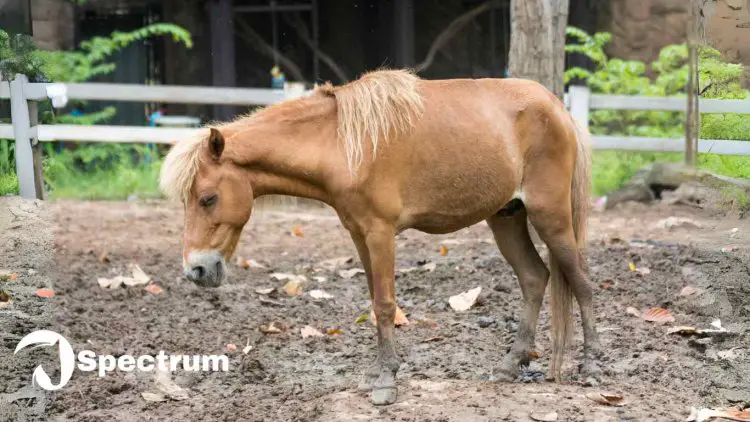
Table of Contents
Understanding Why Your Horse Becomes a Picky Eater
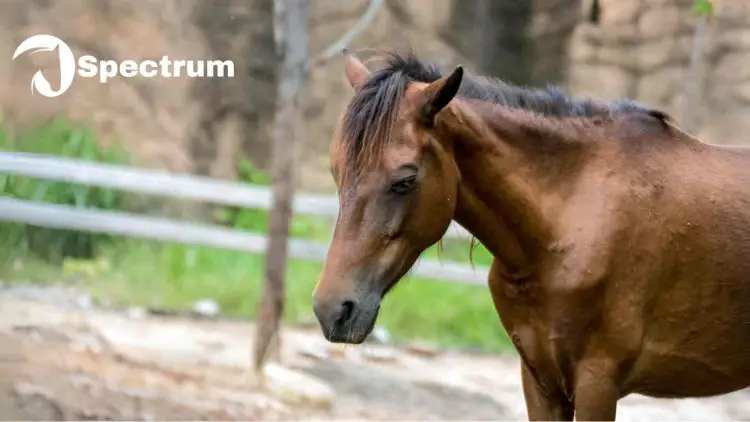
Just like humans, horses can also develop a picky eating behavior. As horse owners, it's crucial to understand the reasons behind this change in dietary habits. It could be due to health problems such as dental issues, gastric ulcers, or parasites which could be making it uncomfortable for the horse to eat. Similarly, changes in feed type, poor-quality feed, or stale water can alter their eating habits. A horse might also develop aversions to certain foods due to past negative experiences. Understanding the underlying cause helps in implementing effective solutions to ensure your horse maintains a balanced diet.
The Nuanced Gastronomy of Picky Horses
Navigating the nuanced gastronomy of picky horses can often be a captivating endeavor. Horses, despite their vigorous nature, can be astonishingly selective with their diet. With a discerning palate, their gustatory preference extends beyond mere oats and straws. A plethora of fruits and vegetables, from the sweet crunchiness of apples to the fibrous allure of carrots, are welcomed with enthusiasm. Remarkably, they even demonstrate an aversion to garlic and onions, highlighting similarities in taste preferences with humans. Truly, a horse's gastronomy presents an intriguing blend of simplicity and complexity that impresses the curious observer.
The Link Between Gastric Ulcers and Picky Eating in Horses
Horses are prone to developing gastric ulcers, with studies showing an established link between its occurrence and picky eating habits. Abrupt changes in diet or irregular feeding schedules can result in an excess production of gastric acid, leading to ulcer formation. The subsequent discomfort and pain often lead to choosy eating patterns. Horses showing signs of selective or erratic eating habits should therefore be assessed for potential gastric ulcers and appropriate dietary interventions applied in time to minimize harm.
Does Your Horse’s Environment Make it Picky?
Indeed, a horse's environment can influence its pickiness. Horses are creatures of habit, and changes in their environment can lead to changes in their behavior. For instance, a horse might become picky about its food if the quality or type of feed changes. Also, if they're accustomed to a serene, quiet environment, they might show signs of stress and refuse food or act out when in a noisy or chaotic setting.
Some Quick Reasons for Picky Eating Behavior and Their Cure
| Causes of Picky Eating Behavior | Cure |
|---|---|
| Dental Issues, such as poor dental maintenance or mouth ulcers | Regular dental check-ups and treatment by a qualified equine dentist or veterinarian. |
| Gastric Ulcers | Consultation with a veterinarian for diagnosis and treatment, which may include medication and dietary adjustments. |
| Stress, Trauma, Excitement, or Exhaustion | Identify and alleviate sources of stress or trauma in the horse's environment, provide a stable routine, and ensure sufficient rest. |
| Complexity and Variation in Meals | Simplify the horse's diet and maintain consistency in feeding routines. Offer a balanced diet with high-quality forage and appropriate concentrates. |
| Behavioral Issues, such as aggression during feeding or inappropriate weaning | Address underlying behavioral problems through proper training and management practices. Ensure foals are weaned appropriately and mares are not aggressive towards them during feeding. |
Creating a Love Mealtime: Strategies to Deal with Picky Eater Horses
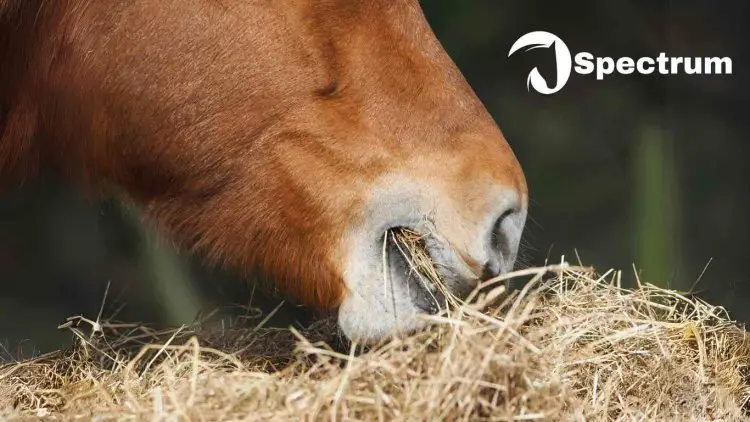
How to Change a Horse's Diet Without Causing Digestive Upsets
When changing a horse's diet, it's important to do so gradually to avoid digestive upsets. Start by mixing a small amount of the new food with the old diet and gradually increase the proportion over one to two weeks. Also, ensure the new diet provides adequate nutrients. Introduce new feeds slowly, and monitor the horse for changes in demeanor, behavior, or stool appearance. Remember to provide fresh water at all times and keep consistent feeding times. Follow these steps to ensure a healthy dietary transition for your horse.
Making Mealtime a Pleasant Event: Tricks and Tips
Making mealtime a pleasant event for a picky eater horse can be a challenge, but some tricks and tips can help. One strategy is to offer a variety of foods, including different types of hay and grain, to appeal to their preferences. Additionally, adding a small amount of molasses or apple juice to their feed can make it more enticing. It’s also important to create a calm and peaceful environment during feeding time, as stress and distractions can contribute to picky eating behaviors. Being patient and consistent with these tactics can ultimately encourage a picky eater horse to enjoy their meals.
Adding Flavor to Compel the Picky Eater to Feast
If you have a picky eater horse, try adding flavor to their meals to entice them to feast. You can mix in some apple or carrot pieces to their hay or grain to make it more appealing. Another option is to add a small amount of molasses or honey for a touch of sweetness. Experiment with different flavors and observe which ones your horse responds to most positively. With a little creativity, you can make mealtime more enjoyable for your picky eater horse.
How to Gradually Introduce New Foods into Your Horse's Diet
When introducing new foods into your horse's diet, do it gradually to avoid digestive upset. Begin with small amounts, mixing the new food with their regular feed. Throughout 7 to 10 days, incrementally increase the proportion of the new food while decreasing their usual feed. Constantly monitor your horse's behavior and stool to ensure they're adapting well to the new diet.
Related: Can Horses Eat Cucumbers: Yes or No?
Turning Hay and Dry Feeds into Horse's Favorites
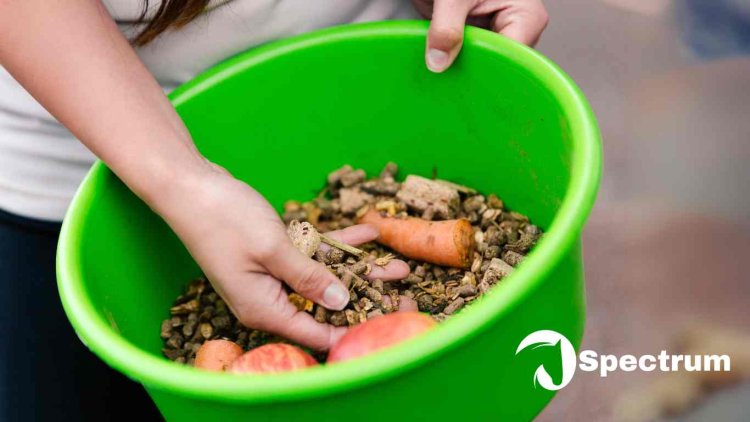
Spicing up Hay: What Can You Safely Add to Make Food More Appealing
Spicing up hay for your picky eater horse can be a little challenging, yet achievable. Safely add fruits and vegetables, like apples, carrots, or peas to make their food more appealing. Consider using herbs like oregano or mint for an extra kick. Flavorful yet safe grains, like oats or barley, can also be a good touch, or perhaps add a licorice root. Always keep it healthy and avoid sugary or harmful substances, ensuring your horse's health while satisfying its taste buds.
From Bran to Beet Pulp: Exploring Texture and Flavor Options
Addressing the dietary preferences of a picky eater horse involves exploring a range of feed options, from bran to beet pulp. While bran offers a softer texture, beet pulp is high in fiber and easy to digest, making it an ideal choice for sensitive stomachs. Adjusting the feed's taste and offering a variety ensures the horse’s nutritional needs are met. Research on feed texture and taste opens up new possibilities for satisfying even the most finicky equine palate.
Making the Perfect Pellet Meal: Ingredients Your Horse Will Love
Creating the perfect pellet meal for your horse begins with understanding their nutritional needs. Horses adore ingredients such as alfalfa, barley, oats, and molasses; all of which form a vital part of a balanced diet. High-quality grass pellets should form the base of the meal, supplemented by grains for energy, and topped with molasses for a hint of sweetness they'll love. A well-rounded pellet meal supports your horse's health and enhances their performance.
Identifying Potential Health Concerns in Picky Eater Horses
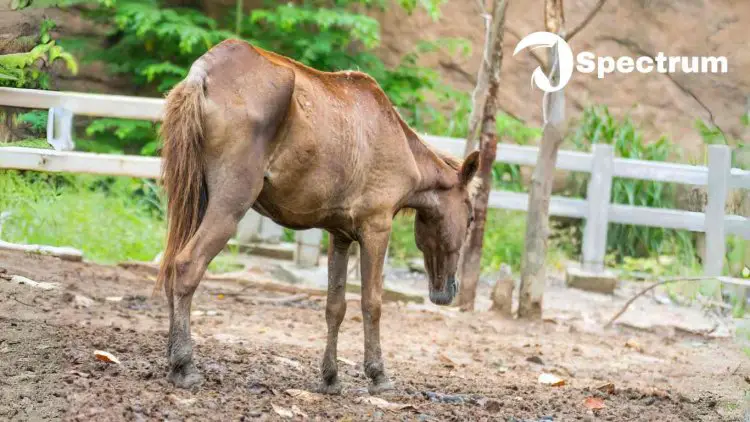
Finding the Balance: Monitoring Weight and Ensuring Optimum Nutrition
Monitoring and managing the weight of a picky eater horse can be a delicate task. It involves striking a balance between maintaining a healthy weight and ensuring optimum nutrition. This can be accomplished by careful observation of the horse's eating habits, regular veterinary checks, and using high-quality, palatable feeds. Maintaining a diverse diet and possibly incorporating dietary supplements can also help to provide the horse with the necessary nutrients and deal with picky eating behaviors.
Detecting Early Signs of Colic and Other Health Risks Related to Picky Eating
Early detection of colic and other health risks related to picky eating involves keen observation of consistent behavior patterns. Frequent abdominal discomfort, erratic feeding habits, and unusual weight loss could signify a developing problem. Consulting with a pediatrician or dietitian is essential in assessing this situation. Being attentive to these symptoms, alongside a comprehensive health check, can aid in developing an appropriate dietary plan, potentially avoiding future health complications.
Does Your Horse's Picky Eating Indicate Underlying Health Issues?
Yes, a horse's picky eating habits can indicate underlying health issues. Notably, changes in eating habits might signal dental problems, metabolic disorders, or gastric issues, such as ulcers. If your horse suddenly becomes a picky eater, refuses its usual food, or even drops food while chewing, this can be a red flag. Always consult a veterinarian to rule out serious health conditions and ensure your horse's optimum well-being.
Chronic Picky Eating: When to Involve a Veterinarian or Equine Nutritionist
Chronic picky eating in horses can potentially lead to serious health issues. If the horse persists in refusing certain foods, loses weight, or displays signs of digestive discomfort, it's advisable to call upon the expertise of a veterinarian or an equine nutritionist. These professionals can help identify underlying health issues causing such behavior, and advise on dietary adjustments, potentially even formulating a personalized feeding plan to restore your horse's nutritional health.
FAQs
Should I ride my picky eater horse?
Deciding whether to ride a picky eater horse largely depends on its health and energy levels. If your horse is refusing food due to illness, stress, or malnutrition, then riding it could cause more harm. If the horse is healthy but simply selective about its diet, riding can be acceptable, given that it gets adequate nutrition for healthy energy output. Always consider subtle signs of distress - consult with a vet before making any drastic changes.
Which horse food is high in protein?
Alfalfa hay is a type of horse food that is high in protein. It is not only nutritious but also helps to maintain healthy weight and muscle development in horses. Additionally, soybean meal and linseed meal are also rich in protein. Both of these horse feeds are often integrated with a balanced horse diet, ensuring optimal health and performance. However, it is crucial to measure the right amount of protein horses require daily.
How do I get my picky horse to eat grain?
Introducing new feed to a picky horse can be challenging. Start by mixing a small amount of grain with their usual feed, gradually increasing the portion over time. Make sure the grain is fresh, as horses can be deterred by stale or off-smelling feed. Adding a flavor enhancer like molasses or apple sauce can make the grain more appealing. Always remember that sudden dietary changes can trigger colic, so monitor your horse's eating habits closely.
What's Your Reaction?

















